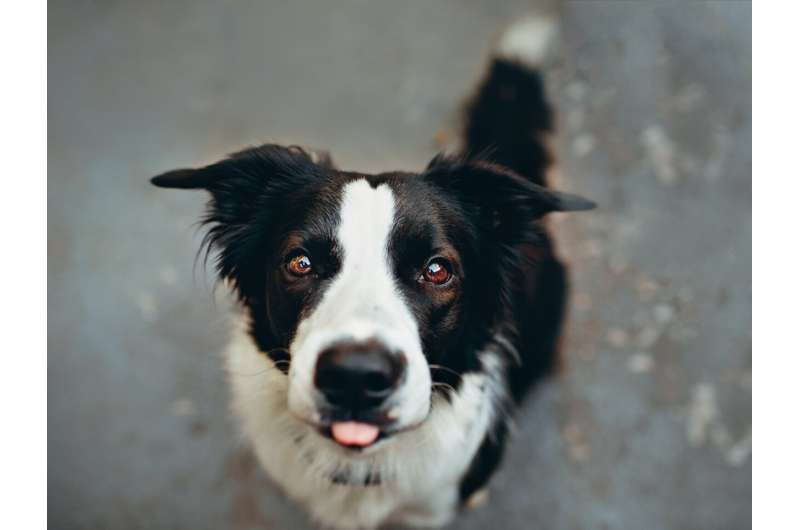Ignore those puppy-dog eyes: Feeding dogs healthy treats during the holidays

Some dogs enjoy the spoils of begging for food; they might even swipe something off of a plate or the table when they think no one is watching. Yet these scraps aren't always healthy for dogs and can create health issues over time.
Because of this, Dr. Katie Tolbert, a clinical associate professor in small animal and comparative gastroenterology at the Texas A&M School of Veterinary Medicine & Biomedical Sciences, reminds pet owners to pay special attention to foods their furry friends eat, especially as pets may have easier access to human meals this holiday season.
For a healthy dog with no food sensitivities, low-fat and high-fiber foods like fruits (except grapes and raisins), vegetables and skinless chicken breast can be given to dogs in small amounts. However, foods that are high in fat or larger pieces of food that may obstruct a smaller esophagus can present health and emergency concerns.
"A lot of the problems that we see over the holidays for dogs are due to foreign body ingestion, so things like giving dogs turkey bones or ham bones," Tolbert shared.
Obstructions from bones can be deadly, so if an owner sees their dog struggling to swallow after sneaking a bone, it is better to visit your veterinarian as quickly as possible to help remove the foreign object.
Issues that are harder to resolve, however, come from consistently feeding dogs high-fat items, leading to obesity and, eventually, other diseases.
"Diseases like worsened airway disease and worsened heart disease are linked to having more fat in the body," Tolbert said.
Pancreatitis, a disease that causes an inflamed pancreas, is a potential long-term effect of feeding dogs too many high-fat items. Pancreatitis symptoms include stomach pain, vomiting, dehydration and shock. If your dog is experiencing these symptoms, head to the nearest clinic so a veterinarian can determine whether your dog has pancreatitis.
For pets to stay healthy and avoid diseases such as pancreatitis, pet food is carefully formulated to provide all of the nutrients your pet requires. Tolbert said homemade meals can provide dogs these nutrients as well, if prepared correctly, with input from a board-certified nutritionist.
Pet treats, on the other hand, pose a threat to pets' nutritional balance when given in excess.
"Because treats are not balanced for the nutrients dogs need, giving them too many treats can create a really challenging situation," Tolbert said. "They can develop a state of malnutrition in the sense that you're not giving your dog enough vitamins or minerals that they actually need."
Tolbert advises limiting treats to 10% or less of your dog's total caloric intake. For example, if your dog eats 500 calories a day, you should give your dog 50 calories or less in treats. Additionally, each dog can have different treats depending on their diets, food sensitivities and health issues.
"Be cognizant of your own dog," Tolbert said. "Each dog is an individual with specific dietary needs."
Finally, Tolbert recommends that owners consider treats such as sweet potatoes, carrots or celery, and even marshmallows—in moderation—which are better, holiday-appropriate alternatives.
The next time your dog flashes "puppy-dog eyes" at you at the dinner table, think carefully about the health concerns associated with feeding your furry friend from your plate. Knowing how to safely treat your dog during the holidays will keep your dog happy and healthy into the new year.
Provided by Texas A&M University





















